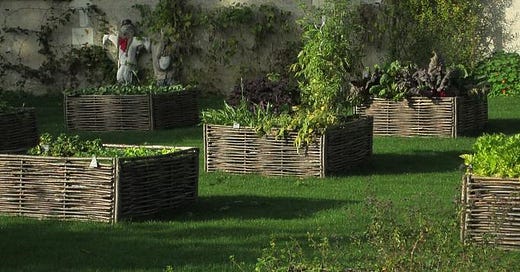Raised Bed Misconceptions (part 2)
Raised beds are popular among gardeners, but this seems to have lead to a proliferation of claims about their advantages that don't makes sense. This two-part series explores those misconceptions.
This two-part series runs through all the most common misconceptions about raised bed gardens. All of the claims that I address in series were found on very popular garden blogs, websites and publications. I’ve saved the ones below for last because none of them are really unique to raised beds, and some are simply preposterous.
Weed control
I have read the claim that raised beds can help reduce weed growth because the new soil brought in to fill them often has less weeds. This is ridiculous. Anyone filling a raised bed with purchased soil - regardless of whether that soil comes in a bag or on the back of a truck - will get that soil from a pile of soil somewhere else. While the soil was sitting in that pile it was collecting thousands of seeds a day from the air - because many plants (like dandelions) spread their seeds by making seeds that work like parachutes, capable of flying many miles through the air. There are also birds and other animals pooping seeds into the soil all day everyday. Also, wherever that soil came from - that place had weeds, and those weeds are sitting dormant in the soil. All soil has weed seeds - the term “soil seed bank” literally exists due to that phenomenon. Raised beds have weeds, especially if they are not mulched. Even if bags of soil were bought, and then microwaved to sterilize them, and every single weed was destroyed, that garden would still have weeds in no time. It is also the case that all gardens periodically need organic material added to the soil. If that material is manure it will have weed seeds. If it is compost - even hot compost (despite what people say) it will most likely have weed seeds in it. All gardens have weeds because weeds are everywhere and go everywhere. Raised beds are not a solution for weeds.
Keep reading with a 7-day free trial
Subscribe to The Maritime Gardening Newsletter to keep reading this post and get 7 days of free access to the full post archives.



